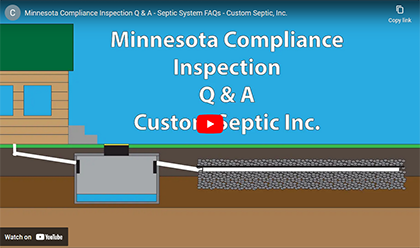Custom Septic's Blog
by Custom Septic | Feb 16, 2024 | Septic Compliance Inspections, Septic Inspection, Septic System Info
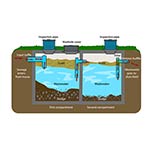 Are you in the market for a new home? Did you find the perfect home, but the thought of a septic system is scaring you away? Well, the truth is that lots of people’s homes have a septic system, and things are going just fine for them. The question that our team at Custom Septic, Inc., gets from a lot of potential home buyers around in MN is whether an old septic system will pass inspection?
Are you in the market for a new home? Did you find the perfect home, but the thought of a septic system is scaring you away? Well, the truth is that lots of people’s homes have a septic system, and things are going just fine for them. The question that our team at Custom Septic, Inc., gets from a lot of potential home buyers around in MN is whether an old septic system will pass inspection?
Continue To Full Article →
by Custom Septic | Feb 9, 2024 | Septic Compliance Inspections, Septic Do's and Don'ts, Septic Inspection
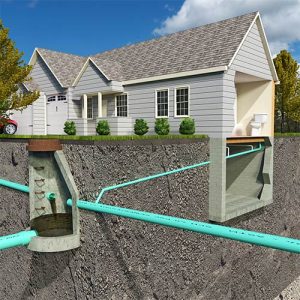 At Custom Septic, we understand the importance of regular plumbing inspections to maintain the functionality and longevity of your septic system. Our experienced technicians conduct comprehensive assessments of your plumbing infrastructure, including the septic tank, pipes, and drainage field. By identifying potential issues early on, we can prevent costly repairs and ensure your system operates efficiently for years to come.
At Custom Septic, we understand the importance of regular plumbing inspections to maintain the functionality and longevity of your septic system. Our experienced technicians conduct comprehensive assessments of your plumbing infrastructure, including the septic tank, pipes, and drainage field. By identifying potential issues early on, we can prevent costly repairs and ensure your system operates efficiently for years to come.
Identifying Problem Areas: During a plumbing inspection, our team examines every aspect of your septic system to pinpoint any signs of damage, deterioration, or dysfunction. From cracks in the tank to tree root intrusion in the pipes, we leave
Continue To Full Article →
by Custom Septic | Feb 2, 2024 | Septic Inspection, Septic Maintenance, Septic System Leak Detection, Septic System Repair
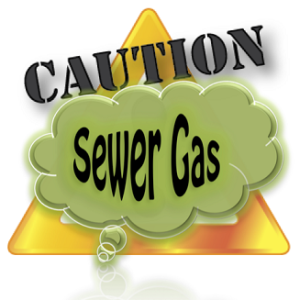 There are many subtle signs that your septic system may not be performing optimally, and that it might be in need of repair – for example, you may notice toilets flushing a bit more slowly than normal, toilets running continuously, or a faint odor inside your bathroom or around your home. More acute symptoms include standing water in your yard, multiple slow draining sinks or tubs or the smell of sewage in and around your home. Custom Septic Inc. specializes in septic system leak detection, so that you do not have to find out the hard way that a potential septic problem has gone from subtle to disastrous. If you notice even very mild or subtle signs, it may be time to contact a professional for assistance.
There are many subtle signs that your septic system may not be performing optimally, and that it might be in need of repair – for example, you may notice toilets flushing a bit more slowly than normal, toilets running continuously, or a faint odor inside your bathroom or around your home. More acute symptoms include standing water in your yard, multiple slow draining sinks or tubs or the smell of sewage in and around your home. Custom Septic Inc. specializes in septic system leak detection, so that you do not have to find out the hard way that a potential septic problem has gone from subtle to disastrous. If you notice even very mild or subtle signs, it may be time to contact a professional for assistance.
Continue To Full Article →
by Custom Septic | Jan 5, 2024 | Septic Inspection, Septic Malfunction, Septic System Contractor
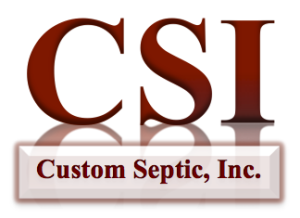 As the holiday season festivities come to an end, you may find yourself dealing with unexpected septic issues. The increased usage of bathrooms, showers, and kitchen facilities during gatherings can put a strain on your septic system. At Custom Septic, we understand the urgency of addressing post-holiday septic challenges, and we’re here to provide reliable solutions for a stress-free start to the new year. If you believe you may have a septic system issue, call for an inspection.
As the holiday season festivities come to an end, you may find yourself dealing with unexpected septic issues. The increased usage of bathrooms, showers, and kitchen facilities during gatherings can put a strain on your septic system. At Custom Septic, we understand the urgency of addressing post-holiday septic challenges, and we’re here to provide reliable solutions for a stress-free start to the new year. If you believe you may have a septic system issue, call for an inspection.
Recognizing the Signs of Septic Trouble
Continue To Full Article →
by Custom Septic | Dec 22, 2023 | Septic Inspection, Septic Malfunction, Septic System Contractor
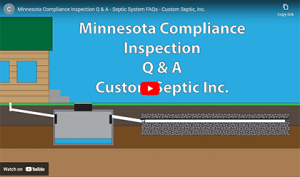 If you own a home with a septic system, you already know how important that septic system is to the function of your home. A septic system is responsible for removing the solid and liquid waste out of your home. That waste is broken down in the septic tank and water goes down into the earth. Your septic system is one of those things that you do not want to have to think much about, but it requires routine maintenance to keep it functioning as it should and to prevent problems from occurring.
If you own a home with a septic system, you already know how important that septic system is to the function of your home. A septic system is responsible for removing the solid and liquid waste out of your home. That waste is broken down in the septic tank and water goes down into the earth. Your septic system is one of those things that you do not want to have to think much about, but it requires routine maintenance to keep it functioning as it should and to prevent problems from occurring.
Continue To Full Article →
by Custom Septic | Dec 8, 2023 | Septic Inspection, Septic System Contractor, Septic System Info
 Your drainfield is a critical part of your home’s septic system. It is responsible for moving waste away from your home. Inspecting your drainfield on a regular basis is part of important routine maintenance that can extend the life of your septic system and save you money. The team at Custom Septic Inc. can complete a thorough septic drainfield inspection to ensure that your system is in good working order. This routine maintenance can prevent a major problem down the road which can be messy and extremely expensive and disruptive
Your drainfield is a critical part of your home’s septic system. It is responsible for moving waste away from your home. Inspecting your drainfield on a regular basis is part of important routine maintenance that can extend the life of your septic system and save you money. The team at Custom Septic Inc. can complete a thorough septic drainfield inspection to ensure that your system is in good working order. This routine maintenance can prevent a major problem down the road which can be messy and extremely expensive and disruptive
Continue To Full Article →
 Are you in the market for a new home? Did you find the perfect home, but the thought of a septic system is scaring you away? Well, the truth is that lots of people’s homes have a septic system, and things are going just fine for them. The question that our team at Custom Septic, Inc., gets from a lot of potential home buyers around in MN is whether an old septic system will pass inspection?
Are you in the market for a new home? Did you find the perfect home, but the thought of a septic system is scaring you away? Well, the truth is that lots of people’s homes have a septic system, and things are going just fine for them. The question that our team at Custom Septic, Inc., gets from a lot of potential home buyers around in MN is whether an old septic system will pass inspection?
 At Custom Septic, we understand the importance of regular plumbing inspections to maintain the functionality and longevity of your septic system. Our experienced technicians conduct comprehensive assessments of your plumbing infrastructure, including the septic tank, pipes, and drainage field. By identifying potential issues early on, we can prevent costly repairs and ensure your system operates efficiently for years to come.
At Custom Septic, we understand the importance of regular plumbing inspections to maintain the functionality and longevity of your septic system. Our experienced technicians conduct comprehensive assessments of your plumbing infrastructure, including the septic tank, pipes, and drainage field. By identifying potential issues early on, we can prevent costly repairs and ensure your system operates efficiently for years to come. There are many subtle signs that your septic system may not be performing optimally, and that it might be in need of repair – for example, you may notice toilets flushing a bit more slowly than normal, toilets running continuously, or a faint odor inside your bathroom or around your home. More acute symptoms include standing water in your yard, multiple slow draining sinks or tubs or the smell of sewage in and around your home. Custom Septic Inc. specializes in septic system leak detection, so that you do not have to find out the hard way that a potential septic problem has gone from subtle to disastrous. If you notice even very mild or subtle signs, it may be time to contact a professional for assistance.
There are many subtle signs that your septic system may not be performing optimally, and that it might be in need of repair – for example, you may notice toilets flushing a bit more slowly than normal, toilets running continuously, or a faint odor inside your bathroom or around your home. More acute symptoms include standing water in your yard, multiple slow draining sinks or tubs or the smell of sewage in and around your home. Custom Septic Inc. specializes in septic system leak detection, so that you do not have to find out the hard way that a potential septic problem has gone from subtle to disastrous. If you notice even very mild or subtle signs, it may be time to contact a professional for assistance. As the holiday season festivities come to an end, you may find yourself dealing with unexpected septic issues. The increased usage of bathrooms, showers, and kitchen facilities during gatherings can put a strain on your septic system. At Custom Septic, we understand the urgency of addressing post-holiday septic challenges, and we’re here to provide reliable solutions for a stress-free start to the new year. If you believe you may have a septic system issue, call for an inspection.
As the holiday season festivities come to an end, you may find yourself dealing with unexpected septic issues. The increased usage of bathrooms, showers, and kitchen facilities during gatherings can put a strain on your septic system. At Custom Septic, we understand the urgency of addressing post-holiday septic challenges, and we’re here to provide reliable solutions for a stress-free start to the new year. If you believe you may have a septic system issue, call for an inspection. If you own a home with a septic system, you already know how important that septic system is to the function of your home. A septic system is responsible for removing the solid and liquid waste out of your home. That waste is broken down in the septic tank and water goes down into the earth. Your septic system is one of those things that you do not want to have to think much about, but it requires routine maintenance to keep it functioning as it should and to prevent problems from occurring.
If you own a home with a septic system, you already know how important that septic system is to the function of your home. A septic system is responsible for removing the solid and liquid waste out of your home. That waste is broken down in the septic tank and water goes down into the earth. Your septic system is one of those things that you do not want to have to think much about, but it requires routine maintenance to keep it functioning as it should and to prevent problems from occurring.  Your drainfield is a critical part of your home’s septic system. It is responsible for moving waste away from your home. Inspecting your drainfield on a regular basis is part of important routine maintenance that can extend the life of your septic system and save you money. The team at Custom Septic Inc. can complete a thorough septic drainfield inspection to ensure that your system is in good working order. This routine maintenance can prevent a major problem down the road which can be messy and extremely expensive and disruptive
Your drainfield is a critical part of your home’s septic system. It is responsible for moving waste away from your home. Inspecting your drainfield on a regular basis is part of important routine maintenance that can extend the life of your septic system and save you money. The team at Custom Septic Inc. can complete a thorough septic drainfield inspection to ensure that your system is in good working order. This routine maintenance can prevent a major problem down the road which can be messy and extremely expensive and disruptive  Now Accepting Major Credit Cards!
Now Accepting Major Credit Cards!